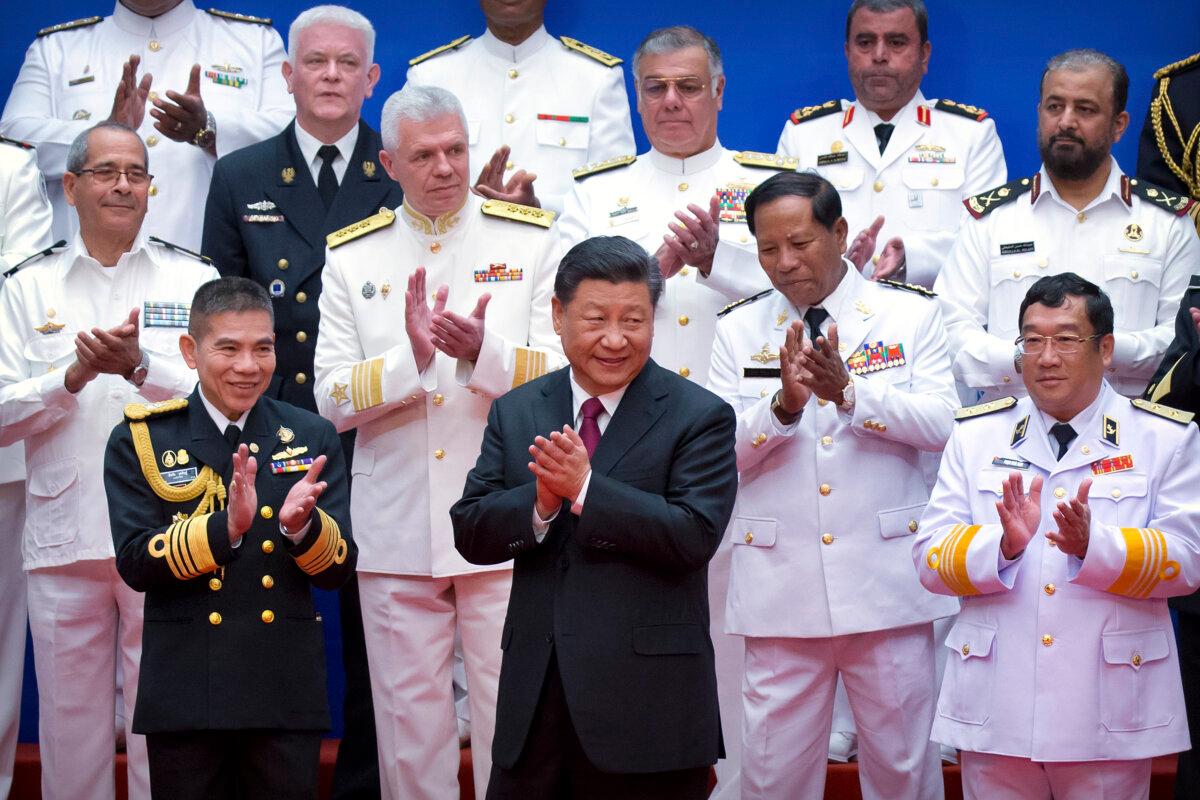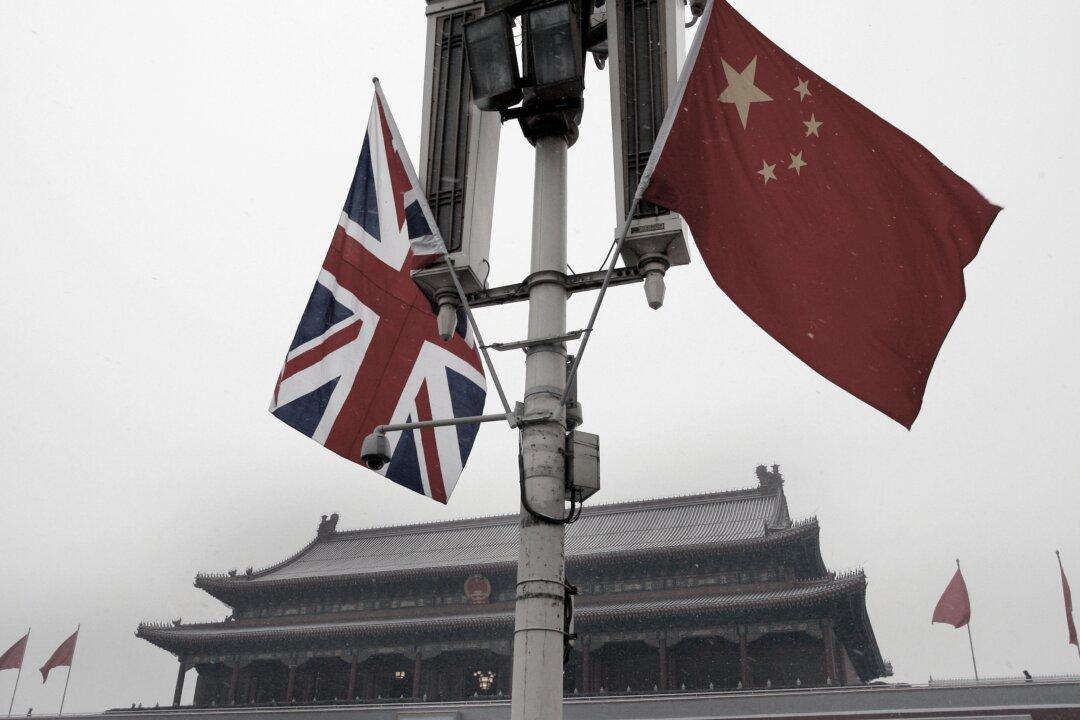A group of Chinese university employees in the UK have sparked security concerns after Beijing rallied them to support its influence campaign and tech transfer efforts.
The UK Higher Education Chinese Employees Association (HECEA) came under scrutiny after an event it held in 2023 was used to connect researchers with entities closely linked to China’s military-industrial complex.
The UK government has taken steps in recent years to shrink security loopholes, including by tightening export controls and creating new legislation that will require foreign agents to register their activities, but HECEA’s executive committee inauguration ceremony has sparked fresh concerns over Beijing’s Military-Civil Fusion strategy and its tech transfer via a web of private companies and professional social networks.
According to the report, members were presented with job opportunities at a university that is closely linked to China’s military.
They were also introduced to projects facilitated by a company linked to China’s top manufacturers of rockets, satellites, and missiles.
Jeffrey Stoff, director of the Center for Research Security and Integrity, who spent almost two decades in the U.S. government as a China analyst and linguist, said HECEA is likely one of many organisations that do similar things in the UK, and warned that such activities, although not illegal, can “represent both national security and economic security risks.”
Charles Parton, former diplomat and associate fellow at the Council on Geostrategy and the Royal United Services Institute, said the government should restrict collaborations that can help China’s military or state surveillance apparatus.
Talent and Tech Transfer
Grown out of a private group chat on Chinese social media platform WeChat, HECEA had over 200 members, including professors, lecturers, researchers, post-doctoral students, and administrators from more than 50 British universities and research institutes including Cambridge and Oxford, Nouvelles d'Europe said.It appears the group primarily functions as a networking platform that provides support and academic exchange among members, but it has also allegedly been co-opted by the Chinese regime to advance its goals.
Attendants of the ceremony were given presentations about job opportunities at China’s Xidian University and projects facilitated by the event’s sponsor, the Beijing Institute of Collaborative Innovation (BICI). Both are closely linked to China’s defence industry.
Xidian University was opened in 1931 as a radio training programme for Red Army soldiers. It assumed its current name in 1988.

ASPI’s research shows the university runs at least five defence laboratories and partners with the People’s Liberation Army’s signals intelligence organisation, appears to be an important training ground for Chinese military hackers, and holds secret-level security credentials that allow it to work on classified weapons projects.
Meanwhile, BICI, a company that funds research and helps translate technology into startups or joint ventures, works with China’s top rocket makers and plays a major role in the Chinese regime’s technological and economic competition strategy.
It’s one of hundreds of collaborative innovation centres that sprang up across China as the regime pushed for accelerated technological and economical development, and it received government funding when it was founded in 2014.
Among its partners are a number of “high” and “very high” risk universities on the ASPI China Defence University Tracker, including Beihang University, one of China’s “Seven Sons of National Defence” that specialises in aerospace, which was blacklisted by the Canadian government in January.
BICI’s partners also include five research institutes that are affiliated with two aerospace conglomerates that make China’s rockets, satellites, and missiles—China Aerospace Science and Technology Corporation and Aviation Industry Corporation of China.
Security Risks
According to researchers at Georgetown University’s Center for Security and Emerging Technology, Beijing uses dozens of legal, illegal, and extralegal means to acquire Western know-how, including via foreign-based alumni associations, Sino-foreign professional associations, and startup competitions.Describing how these networks typically work, Mr. Stoff told The Epoch Times they often “get direct tasking from the PRC government” to recruit highly trained experts in critical technology fields to go to China and “either help run labs and research institutions, or set up businesses and offshore that know-how for China’s benefit.
“So it’s not really clear how the host country in the UK is benefiting from the activities of an organisation like this when a key objective is basically to serve the PRC’s interests,” he said.
He also said there’s a potential scenario in which entities such as BICI are “basically tapping into cutting edge research at U.S. and UK universities, and then trying to create commercial industry and defence applications to their research for China’s benefit.”
The strategy is implemented both by boosting China’s domestic research capabilities and by “acquiring and diverting the world’s cutting-edge technologies—including through theft—in order to achieve military dominance,” its briefing said.
It listed key technologies targeted under MCF, including quantum computing, big data, semiconductors, 5G, advanced nuclear technology, aerospace technology, and AI.
“The PRC specifically seeks to exploit the inherent ‘dual-use’ nature of many of these technologies, which have both military and civilian applications,” it added.
The Epoch Times is not alleging any wrongdoing by HECEA members, and it’s unclear what jobs and projects they have been introduced to.

Mr. Parton said it needs to be understood whether the projects involve technology that can be used for the military or surveillance equipment.
“If these people are working in areas which are sensitive, either militarily or oppression surveillance, then I think it is right to restrict them from from helping a hostile power,” he told The Epoch Times.
He also argued that at doctoral and post-doctoral level, mainland Chinese professions should be excluded from these sensitive research areas, and those with PLA or weapons manufacturing backgrounds “shouldn’t be allowed in to study.”
Mr. Stoff believes it’s more efficient to focus on the highest risk entities, which are either directly tied to the military or extensively involved in supporting defence research.
These entities “have built dedicated programmes, capabilities, resources, and knowledge” to divert research for military use, he said.
He also said there should be some exceptions, such as collaborations on nuclear safety and stewardship.
United Front Strategy
At HECEA’s executive committee inauguration ceremony, the group’s first and incumbent chairperson, University of Southampton senior teaching fellow Hua Ping, who has previously defended the CCP’s policies on Hong Kong, Xinjiang, and Taiwan, “condemned the British government’s suppression of normal academic exchanges in the name of ‘national security,’” Nouvelles d'Europe said.Chinese Embassy Attaché Liu Hongmei and Consul Yu Kang were also among the guests.
According to the report, Ms. Liu called on the academics to play a role in Sino–British exchanges and counter “racism” and other “anti-China forces.”
“Be evangelists of Chinese culture, narrators of China’s story, and champions of Sino–British collaborations,” she said.
Telling “China’s story” is part of the CCP’s “United Front” strategy that involves promoting CCP narratives with creative and palatable means. It came from a speech given by Chinese leader Xi Jinping, who told party members to “do well in telling China’s story and spreading China’s voice.”
The effort is spearheaded by the CCP’s United Front Work Department, but non-party members can also be coopted, willingly or unwillingly, to help with implementing the wider strategy.
Neither UK HECEA nor Ms. Hua responded when The Epoch Times asked whether the group is a registered entity in the UK and the source and amount of the group’s funding.
China experts called for transparency in groups operating in the UK.
In an email to The Epoch Times, Sam Dunning, director of UK–China Transparency, said, “If UK organisations collaborate or work jointly with the Chinese Embassy or the United Front Work Department of the CCP, then they should be transparent about this and expect to face public scrutiny.”
Mr. Stoff said, “I think at a minimum, these types of entities need to be transparent about who they are, who they partner with, and whether they receive funding or other support from the PRC government or its proxies. And this type of transparency should also apply to universities with respect to disclosing PRC gifts and contracts.”
Liberal democracies including the UK and the United States “are not doing nearly enough to address glaring problems regarding a lack of transparency and integrity that some PRC partners exhibit,” he said.
“Yet we continue to collaborate extensively, and we don’t seem to consider this as its own risk factor.”
BICI and the Chinese Embassy also did not respond to requests for comment.







